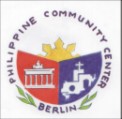| HOME PREVIOUS NEXT ARCHIVE PINOY TOK |  |
BERLINews Online Newsletter Nr. 137 Philippine Community |
 Dr. Rey Agana |
PART 1: A cozy Autumn interview
Dr. Rey Agana has years of experience in market research, investor recruitment, property identification, acquisition and disposal. He worked as a project supervisor for various international market research institutions in Berlin, Germany for more than 6 years and became head of investor relations of a Berlin-based real estate consultancy group from 2006 to 2008. He has a B.S. degree in Commerce majoring in Accounting from the Ateneo University - Davao City, Philippines and has worked with the Philippine National Bank for more than 5 years. He completed his Master of Arts in Educational Science, Linguistics and Business Management in 2000 and has been conferred a Ph.D. degree in Semiotics in 2007 at the Technische Universität Berlin . Dr. Agana, who hails from Davao city, has decided to be a German citizen. Presently teaching Tagalog courses at the Humboldt University, he teaches also English in a private integrated secondary school in Neukölln and conducts training seminars in business and conversational English in various institutions in Berlin. He writes for the “Südostasien” focusing on social, political and cultural themes concerning the Philippines. Dr. Agana, author of the book “The Role of Rumors in Informal Learning”, is the founder of Projekt Bayernallee. |
|
Dr. Rey Agana, tell us about Projekt Bayernallee. “Bayernallee” is a household word among Filipino-German families. The name has reference to our Berlin Philippine Center which is located at Bayernallee 28. At Bayernallee we experience “live” Filipino-German socio-cultural encounters taking place. The Sunday afternoon mass, the half-chaotic Filipino bazaar and the numerous activities going on within the compound of the Heilig-Geist Kirche make you feel like you’re in the Philippines. For Filipinos and Filipino-Germans living and working here in Berlin, Bayernallee is a piece “home” in this foreign and cold country. And for many of our German friends, partners and their relatives, as well as the second and third generation Filipinos/Filipino-Germans here, Bayernallee is their “window” to the Philippines – a country where they can draw familial and cultural affinity. Although Catholic spiritual activities are at the center of this cross-cultural rendezvous, Bayernallee remains nonetheless of importance to anyone who has a stake in Philippine-German relations. Religious and political beliefs play a very little or no role to be a part of this growing, multi-lingual, multi-ethnic and virtually ecumenical community. The result of the Philippine community survey conducted in 2009 has prompted us to focus on fostering a two-way integration process between Germans and Filipinos in the German-Filipino community and (I would like to emphasize the word “and”) among the Filipinos themselves. Perhaps, there is no other optimal way to trigger the cross cultural integration process but through the languages. In 2009, I started offering Tagalog conversation courses at the Jugendheim. Parallel to that, I conducted training courses for potential Tagalog teachers culminating into promising pilot projects. Eventually, I was also giving German basic courses to second generation Filipinos and was teaching German at the Philippine Embassy as part of Project Bayernallee. Since 2011, I have integrated all my Tagalog courses at the Jugendheim in my Tagalog seminars at the Humboldt University. Anyone can enroll in one of my Tagalog courses there as Gasthörer (guest student) for a very minimal fee. Late this year, the first of the four part Tagalog textbook in German which I have authored will be made available in German bookstores. This is another shot at promoting cultural understanding between Filipinos and Germans by way of the language. We expect more boost in the coming months with current auxiliary projects like, Tagalog-German App for cellphones or Cebuano textbook for Germans, already being worked out and will be available in the community. |
How significant is it regarding the integration of German husbands in the Philippine Community in Berlin? Projekt Bayernallee was my personal response to the issues of integration (and of its biases) as “enforced” under the new “Ausländergesetz”. Now, try to look at the situation the other way around. What if the Philippine government would one day impose Filipino language courses, as a pre-requisite, on all foreigners wanting to settle in the Philippines? Imagine Germans having to pass Filipino language courses first before they could marry and rejoin their Filipino partners. What about the elderly foreigners wishing to retire and spend the rest of their lives in our paradise-like islands? The situation with or without such legislation is serious. There is a need for both Philippine and German governments and all stake-holders of Philippine-German relations to rethink their position with regards to integration. I have been a witness myself to many instances of verbal abuse committed by German husbands to their Filipino wives. The causes of which are very much rooted in the language barrier. The dilemma is when German partners fail to understand Filipino way of thinking. Our sense of humor, our gestures, our customs and traditions, our eating habits, etc. are deeply rooted in our unique Filipino culture. I believe, the new Ausländergesetz would have been more effective if we see it supporting cross-cultural awareness. Under the present system, we see a massive “Germanization” of foreigners like us from the third world country with total disregard to cross-cultural sensitivities and other domestic issues. When we see German husbands sitting on one side of the hall during gatherings, while their Filipino wives sticking to their kind on the other side, this is certainly not integration for me. I look forward to a time when it would become usual for Germans and Filipinos sharing rumors (tsismis) and laughing at jokes during gatherings together. Now to answer your question. Yes. The integration of German husbands in the Philippine Community in Berlin is very significant. Albeit, we are very much assured that the Germans we see in Bayernallee are more or less the very Germans “already integrated” in the community. I am much more concerned about the German husbands we seldom see around or the non-visible ones. ALAN VALDEZ
Editor - The Migrant |
| TOP | continue... Part 2 |